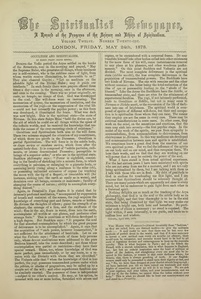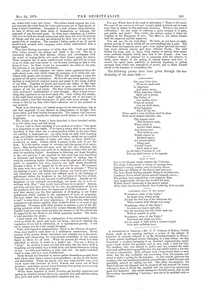HPB-SB-7-134: Difference between revisions
(Created page with "{{HPB-SB-header | volume =7 | page =134 | image = SB-07-134.jpg | notes = }} {{HPB-SB-item | volume = 7 | page =134 | item =1 | type = image | file = | status = w...") |
mNo edit summary |
||
| (2 intermediate revisions by the same user not shown) | |||
| Line 1: | Line 1: | ||
{{HPB-SB-header | {{HPB-SB-header | ||
| volume =7 | | volume = 7 | ||
| page =134 | | page = 134 | ||
| image = SB-07-134.jpg | | image = SB-07-134.jpg | ||
| notes = | | notes = | ||
| Line 8: | Line 8: | ||
{{HPB-SB-item | {{HPB-SB-item | ||
| volume = 7 | | volume = 7 | ||
| page =134 | | page = 134 | ||
| item =1 | | item = 1 | ||
| type = image | | type = image | ||
| file = | | file = SB-07-134-1.jpg | ||
| status = | | image size = 200px | ||
| status = ok | |||
| author = | | author = | ||
| title = | | title = | ||
| Line 24: | Line 25: | ||
{{HPB-SB-item | {{HPB-SB-item | ||
| volume =7 | | volume = 7 | ||
| page =134 | | page = 134 | ||
| item =2 | | item = 2 | ||
| type = article | | type = article | ||
| status = | | status = proofread | ||
| continues = | | continues = | ||
| author = | | author = | ||
| title =Occultism and Spiritualism | | title = Occultism and Spiritualism | ||
| subtitle = | | subtitle = | ||
| untitled = | | untitled = | ||
| source title =Spiritualist | | source title = London Spiritualist | ||
| source details = | | source details = No. 300, May 24, 1878, p. 241 | ||
| publication date =1878-05-24 | | publication date = 1878-05-24 | ||
| original date = | | original date = | ||
| notes = | | notes = | ||
| Line 42: | Line 43: | ||
}} | }} | ||
... | <center>{{Style S-Small capitals|By Baboo Peary Chand Mittra.}}</center> | ||
{{Style S-Small capitals|During}} the Vedic period the Aryas settled on the banks of the Seraswate, rose in the morning and prayed, “May the Supreme Ruler, who generates all things, whose luminous ray is self-existent, who is the sublime cause of light, from whom worlds receive illumination, be favourable to us!” They also chanted Gayitri: “Let us meditate on the adorable light of the Divine Ruler; may it guide our intellects.” In each family there were prayers offered three times a day—once in the morning, once in the afternoon, and once in the evening. There was no priest originally, no caste, no temple, no image of God. God was worshipped in the soul. The will-force went on increasing. The mesmerism of prayer, the mesmerism of insulation, and the mesmerism of the yogi—or the suppression of the vital life—could not but intensify the psychic power as this force was developed, it illuminated the brain. What was dark was now bright. This is the spiritual state—the state of Nirvana. In this state Sakya Muni “held the divine eye, by the aid of which he could see all things within the space of the infinite worlds, and he received the knowledge that unfolds the causes of the ever-recurring circle of existence.” | |||
Occultism and Spiritualism both aim at the will force. These two sciences engaged the attention of my countrymen, of which there are proofs in the Darsanas. Occultism is partial Spiritualism. The will force is in the subtle body, or ''linga sarira ''or ''sucshma sarira, ''which lives after the natural body dies. It is composed of “subtle particles, rudiments, or atoms denominated ''Tanmatra; ''perceptible to beings of a superior order,” or who are in the spiritual state. Sankhya philosophy says: “Power is eightfold, consisting in the faculty of shrinking into a minute form, to which everything is pervious, or enlarging to a gigantic body, or assuming levity (rising along a sunbeam to the solar orb), or possessing unlimited extension of organs (as touching the moon with the tip of a finger), or irresistible will (for instance, sinking into the earth as easily as in water), and dominion over all beings, animate or inanimate; faculty of changing the course of nature; ability to accomplish everything desired.” | |||
Again, in Pataryali’s ''Yoga, Sastra ''it is stated that by intensely profound meditation, “accompanied by suppression of breath and restraint of the senses, the yogi acquires the knowledge of everything past and future, remote or hidden. He divines the thoughts of others; gains the strength of an elephant, the courage of a lion, and the swiftness of the wind; flies in the air, floats in water, dives into the earth, contemplates all worlds at one glance, and performs other strange feats.” This is occultism or will-force developed to a high degree. But Sankhya says: “It prepares the soul for that absorbed contemplation by which the great purpose of deliverance is to be accomplished.” Again, it says that the acquisition of “such power, however transcendent,” is not sufficient for the attainment of beatitude. Let us see what the ''Vedanta ''says: “The souls of those holy persons only, whose devout meditations were addressed to the pure Brahma himself, take the route described; not those whose contemplation was partial or restrictive—they have their special reward. Those, too, whose knowledge of God was more perfect, pass immediately, or by any route, to a reunion with the Divinity with whom they are identified.” The ''Vedanta ''adds that “when the knowledge of God is less perfect, the yogi possesses transcendent powers under which the ''pitries, ''or shades of progenitors, may be called up by a simple act of the will; and other superhuman faculties may be similarly exerted. The possessor of these is independen—subject to no other’s control. He may, at his option, be invested with one or more bodies, furnished with senses and organs, or be encumbered with a corporeal frame. He may translate himself into other bodies called into other existences by the mere force of his will, cause instantaneous removal to any place at his pleasure, and other wondrous performances.” On this point Sankhya and Vedantie are not divided. The most complete deliverance is the spiritual state ''(vidiha mookti), ''the less complete deliverance is the Requisition of transcendental powers. The Buddhists have two kinds of Nirvana. The one with remains and the other without remains; the latter being the total extinction of the idea of ''ego ''or personality leading to the “abode of the blessed.” Like the Aryas the Buddhists have the ''Siddhi, ''or transcendent state, and there are rites for the attainment of supernatural faculties. The yogi, if not intensely performed, leads to Occultism or Siddhi, but not in many cases to ''Nirvana ''or ''Bideha mucti, ''or the conversion of the life of darkness into one of brightness. The spiritual world is composed of spirits of different will-force, but their real occupation is to spiritualise those whom they can raise. The means they employ are not the same in every case. There may be external manifestations in some cases. In other cases, they work on the ''mind, ''on the sensations and emotions, that the man may sink into ''serenity''—the first psychic stage. In the midst of the work of the spirits, we pass from sympathy to somnambulism, from somnambulism to clairvoyance, from clairvoyance to ''Nirvana. ''In this way mediums are developed and communication between men and spirits is established. We sometimes know a great deal from the exercise of our own spiritual power. But we feel the influence of the spirits on our body and on our mind, and thus recognise them. We hear their words, and we find that they are working on our will-power, that it may be entirely the power of the soul. | |||
What I have stated is from actual spiritual experience. For the last sixteen years I have been associated with spirits who are not away from me for a moment, and I am not only being spiritualised by them, but I am talking with them as I talk with those who are in flesh. My debt of gratitude to God is endless for vouchsafing me this light, and I am anxious that Spiritualism should be solemnly thought of. There are many points which are apparently not clear to every mind, but let us endeavour to gain light from each other in a fraternal spirit. | |||
Nothing delights me so much as the teaching of the Arya philosophy, that God is in the soul or the subtle body as its internal light, and that true theosophy is to be in the soul state, that being illumined by that light we may make our existence a bright one, both here and hereafter. No particular code of ethics is necessary; no creed is required. The light within, if seen internally, is our guide, and leads us to endless love and wisdom, | |||
Calcutta, April 20th, 1878. | |||
{{HPB-SB-item | {{HPB-SB-item | ||
| volume =7 | | volume = 7 | ||
| page =134 | | page = 134 | ||
| item =3 | | item = 3 | ||
| type = poem | | type = poem | ||
| status = | | status = proofread | ||
| continues = | | continues = | ||
| author = | | author = | ||
| title =What is God? | | title = What is God? | ||
| subtitle = | | subtitle = | ||
| untitled = | | untitled = | ||
| source title = | | source title = London Spiritualist | ||
| source details = | | source details = No. 300, May 24, 1878, p. 245 | ||
| publication date = | | publication date = 1878-05-24 | ||
| original date = | | original date = | ||
| notes = | | notes = | ||
| Line 63: | Line 76: | ||
}} | }} | ||
... | {{Style P-Poem|poem={{Style S-Small capitals|God}} is the Magnet which attracts the Universe, | ||
The Great Unknowable to whom all learners bow, | |||
Creation’s loving, tender, and all-pitying Nurse, | |||
The Sire and Mother of the future past and now, | |||
The Love-Force binding sentient things in brother-love, | |||
Creation’s Nerve which throbs around, beneath, above; | |||
The perfect, ever-yearned for, ever-ungained Rest, | |||
And unattainable, till man has worked his best, | |||
Within ''thyself ''Immortal, is the answer sealed. | |||
''When thou hast formed thyself thou’lt find thy God revealed.''}} | |||
{{HPB-SB-footer-footnotes}} | |||
{{HPB-SB-footer-sources}} | |||
<gallery widths=300px heights=300px> | |||
london_spiritualist_n.300_1878-05-24.pdf|page=3|London Spiritualist, No. 300, May 24, 1878, p. 241 | |||
london_spiritualist_n.300_1878-05-24.pdf|page=7|London Spiritualist, No. 300, May 24, 1878, p. 245 | |||
</gallery> | |||
Latest revision as of 14:11, 7 March 2024

Legend

Occultism and Spiritualism
During the Vedic period the Aryas settled on the banks of the Seraswate, rose in the morning and prayed, “May the Supreme Ruler, who generates all things, whose luminous ray is self-existent, who is the sublime cause of light, from whom worlds receive illumination, be favourable to us!” They also chanted Gayitri: “Let us meditate on the adorable light of the Divine Ruler; may it guide our intellects.” In each family there were prayers offered three times a day—once in the morning, once in the afternoon, and once in the evening. There was no priest originally, no caste, no temple, no image of God. God was worshipped in the soul. The will-force went on increasing. The mesmerism of prayer, the mesmerism of insulation, and the mesmerism of the yogi—or the suppression of the vital life—could not but intensify the psychic power as this force was developed, it illuminated the brain. What was dark was now bright. This is the spiritual state—the state of Nirvana. In this state Sakya Muni “held the divine eye, by the aid of which he could see all things within the space of the infinite worlds, and he received the knowledge that unfolds the causes of the ever-recurring circle of existence.”
Occultism and Spiritualism both aim at the will force. These two sciences engaged the attention of my countrymen, of which there are proofs in the Darsanas. Occultism is partial Spiritualism. The will force is in the subtle body, or linga sarira or sucshma sarira, which lives after the natural body dies. It is composed of “subtle particles, rudiments, or atoms denominated Tanmatra; perceptible to beings of a superior order,” or who are in the spiritual state. Sankhya philosophy says: “Power is eightfold, consisting in the faculty of shrinking into a minute form, to which everything is pervious, or enlarging to a gigantic body, or assuming levity (rising along a sunbeam to the solar orb), or possessing unlimited extension of organs (as touching the moon with the tip of a finger), or irresistible will (for instance, sinking into the earth as easily as in water), and dominion over all beings, animate or inanimate; faculty of changing the course of nature; ability to accomplish everything desired.”
Again, in Pataryali’s Yoga, Sastra it is stated that by intensely profound meditation, “accompanied by suppression of breath and restraint of the senses, the yogi acquires the knowledge of everything past and future, remote or hidden. He divines the thoughts of others; gains the strength of an elephant, the courage of a lion, and the swiftness of the wind; flies in the air, floats in water, dives into the earth, contemplates all worlds at one glance, and performs other strange feats.” This is occultism or will-force developed to a high degree. But Sankhya says: “It prepares the soul for that absorbed contemplation by which the great purpose of deliverance is to be accomplished.” Again, it says that the acquisition of “such power, however transcendent,” is not sufficient for the attainment of beatitude. Let us see what the Vedanta says: “The souls of those holy persons only, whose devout meditations were addressed to the pure Brahma himself, take the route described; not those whose contemplation was partial or restrictive—they have their special reward. Those, too, whose knowledge of God was more perfect, pass immediately, or by any route, to a reunion with the Divinity with whom they are identified.” The Vedanta adds that “when the knowledge of God is less perfect, the yogi possesses transcendent powers under which the pitries, or shades of progenitors, may be called up by a simple act of the will; and other superhuman faculties may be similarly exerted. The possessor of these is independen—subject to no other’s control. He may, at his option, be invested with one or more bodies, furnished with senses and organs, or be encumbered with a corporeal frame. He may translate himself into other bodies called into other existences by the mere force of his will, cause instantaneous removal to any place at his pleasure, and other wondrous performances.” On this point Sankhya and Vedantie are not divided. The most complete deliverance is the spiritual state (vidiha mookti), the less complete deliverance is the Requisition of transcendental powers. The Buddhists have two kinds of Nirvana. The one with remains and the other without remains; the latter being the total extinction of the idea of ego or personality leading to the “abode of the blessed.” Like the Aryas the Buddhists have the Siddhi, or transcendent state, and there are rites for the attainment of supernatural faculties. The yogi, if not intensely performed, leads to Occultism or Siddhi, but not in many cases to Nirvana or Bideha mucti, or the conversion of the life of darkness into one of brightness. The spiritual world is composed of spirits of different will-force, but their real occupation is to spiritualise those whom they can raise. The means they employ are not the same in every case. There may be external manifestations in some cases. In other cases, they work on the mind, on the sensations and emotions, that the man may sink into serenity—the first psychic stage. In the midst of the work of the spirits, we pass from sympathy to somnambulism, from somnambulism to clairvoyance, from clairvoyance to Nirvana. In this way mediums are developed and communication between men and spirits is established. We sometimes know a great deal from the exercise of our own spiritual power. But we feel the influence of the spirits on our body and on our mind, and thus recognise them. We hear their words, and we find that they are working on our will-power, that it may be entirely the power of the soul.
What I have stated is from actual spiritual experience. For the last sixteen years I have been associated with spirits who are not away from me for a moment, and I am not only being spiritualised by them, but I am talking with them as I talk with those who are in flesh. My debt of gratitude to God is endless for vouchsafing me this light, and I am anxious that Spiritualism should be solemnly thought of. There are many points which are apparently not clear to every mind, but let us endeavour to gain light from each other in a fraternal spirit.
Nothing delights me so much as the teaching of the Arya philosophy, that God is in the soul or the subtle body as its internal light, and that true theosophy is to be in the soul state, that being illumined by that light we may make our existence a bright one, both here and hereafter. No particular code of ethics is necessary; no creed is required. The light within, if seen internally, is our guide, and leads us to endless love and wisdom,
Calcutta, April 20th, 1878.
What is God?
God is the Magnet which attracts the Universe, |
Editor's notes
Sources
-
London Spiritualist, No. 300, May 24, 1878, p. 241
-
London Spiritualist, No. 300, May 24, 1878, p. 245


